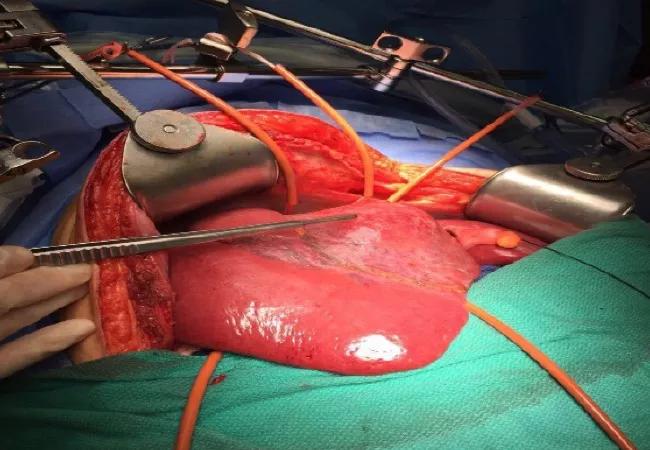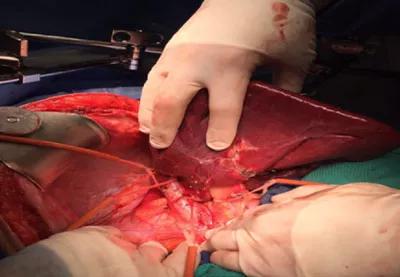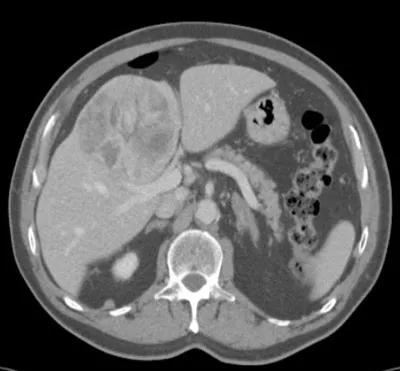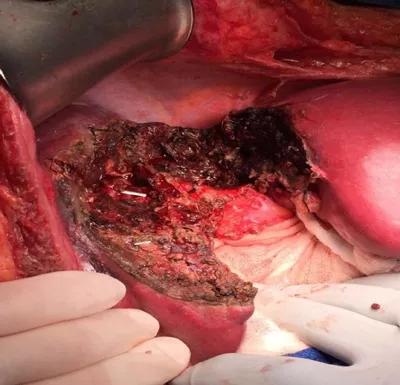Skilled team provides advanced surgical interventions

Image content: This image is available to view online.
View image online (https://assets.clevelandclinic.org/transform/34188f48-d986-4ee5-964a-ea38a1702ebf/17-DDI-3851-Complex-Liver-CQD-Hero_jpg)
17-DDI-3851-Complex-Liver-CQD-Hero
Advertisement
Cleveland Clinic is a non-profit academic medical center. Advertising on our site helps support our mission. We do not endorse non-Cleveland Clinic products or services. Policy
Liver resection continues to be a mainstay treatment for patients presenting with primary and secondary liver malignancies. In the case of hepatocellular carcinoma (HCC), liver resection is a curative alternative. However in HCC patients with cirrhosis and portal hypertension, liver transplantation is the standard of care.
Pretransplant locoregional therapy or liver resection are common approaches to keep patients within transplant eligibility. In line with this, organ allocation in HCC patients undergoing transplantation in the setting of severe organ scarcity continues to be challenging, as accurate predictors of posttransplant tumor recurrence are lacking.
At Cleveland Clinic’s Hepato-Biliary Cancer Center, we offer advanced surgical interventions via sophisticated surgical techniques to patients with complex tumors.
The patient is a 77-year-old male diagnosed with a large, central HCC abutting the portal vein bifurcation. After undergoing evaluation at a large, out-of-state tertiary facility, the patient received locoregional therapy but was denied surgery due to his age and advanced disease.
Seeking a surgical option and therefore a second opinion, the patient consulted the multidisciplinary Liver Tumor Clinic at Cleveland Clinic.
A large R0 central hepatectomy was successfully performed and the patient was discharged from the hospital on post-operative Day 7 without complications.

Image content: This image is available to view online.
View image online (https://assets.clevelandclinic.org/transform/f204493f-cda2-472a-94d0-d9d386f72573/17-DDI-3851-Complex-Liver-CQD-Ins1_jpg)
Total vascular control (supra-hepatic and infra-hepatic vena cava, and liver hilum) in preparation for parenchymal transection.
Advertisement

Image content: This image is available to view online.
View image online (https://assets.clevelandclinic.org/transform/2a5d09d5-a31a-4f45-885c-f0127cb8b552/17-DDI-3851-Complex-Liver-CQD-Ins2_jpg)
Cross sectional imaging via computed tomography demonstrating a large central liver mass (hepatocellular carcinoma).

Image content: This image is available to view online.
View image online (https://assets.clevelandclinic.org/transform/64cd09d9-8a16-415b-bd5d-7c03b83f6299/17-DDI-3851-Complex-Liver-CQD-Ins3_jpg)
Surgical resection bed (histopathology analysis confirmed negative tumor margins).
References
Advertisement
Advertisement
First-of-its-kind research investigates the viability of standard screening to reduce the burden of late-stage cancer diagnoses
Global R&D efforts expanding first-line and relapse therapy options for patients
Study demonstrates ability to reduce patients’ reliance on phlebotomies to stabilize hematocrit levels
A case study on the value of access to novel therapies through clinical trials
Findings highlight an association between obesity and an increased incidence of moderate-severe disease
Cleveland Clinic Cancer Institute takes multi-faceted approach to increasing clinical trial access 23456
Key learnings from DESTINY trials
Overall survival in patients treated since 2008 is nearly 20% higher than in earlier patients